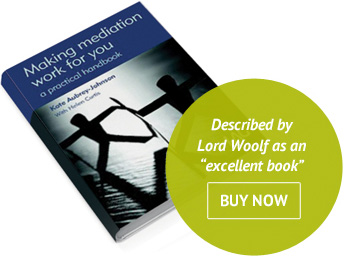BLOG
Leave the parties’ agreement in tact
January 28, 2019
Mediation, as mediators are very well aware, relies on agreement. Agreement is central to the process, from the initial agreement to mediate to, we hope, finalising the details of a Mediation Agreement. One of the powerful attractions of mediation is the parties’ control over the terms of any agreement reached, as opposed to handing control of the outcome to a Judge, Arbitrator or other decision maker. Bearing that in mind, the case of Great Dunmow Estates v Crest Nicholson Ltd (High Court, Chancery Division, 11 June 2018), even though it did not involve mediation, contains some thought provoking material for mediators to reflect on.
In this case the claimant, Great Dunmow Estates and first defendant Crest Nicholson entered into a conditional contract for sale of land owned by the claimant. The contract provided for the appointment of a valuer to estimate the value of the property. The valuer directed the parties’ own experts to produce a statement of agreed facts, which they did. In the statement, the experts agreed on a valuation date, which would be the date when the valuer issued his determination.
When he came to issue his determination, the valuer stated that he disagreed with the valuation date set out in the statement of agreed facts. The claimant challenged this decision, and the Court held that the valuer was not entitled to ignore the experts’ agreement and decide such issues for himself. In the circumstances, the claimant was entitled to a declaration that the parties’ agreement as to the valuation date should stand.
It is interesting to consider the effect of the statement of agreed facts and compare this to what may happen during mediation. The parties were effectively directed to narrow the issues by identifying what was and was not agreed. This is of course often one of the outcomes of a mediation. The statement must inevitably have involved compromise and probably attention to commercial reality, again a key factor in most mediations. It must have been the parties’ intention that they be bound by the agreement which they made because it made commercial sense to them, irrespective of whether the valuer thought the agreement was right or wrong. This is at the very heart of mediation, and perhaps a matter which legally qualified mediators are wise to remind themselves of occasionally; the mediation agreement is about reflecting the parties’ wishes and decisions, based on THEIR commercial understanding, positions and emotions. This does not include the views of a valuer, lawyer and most certainly not the mediator!

